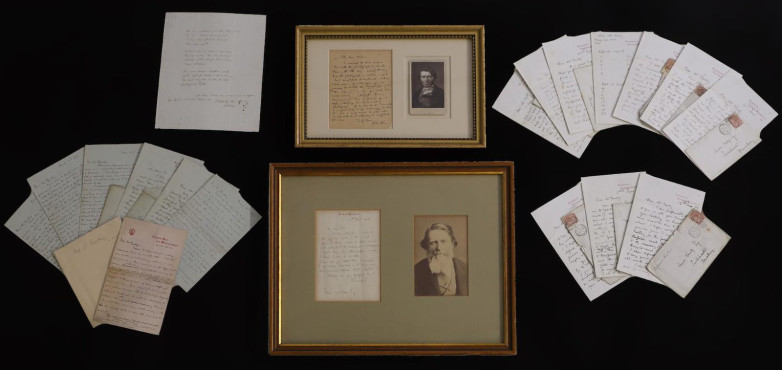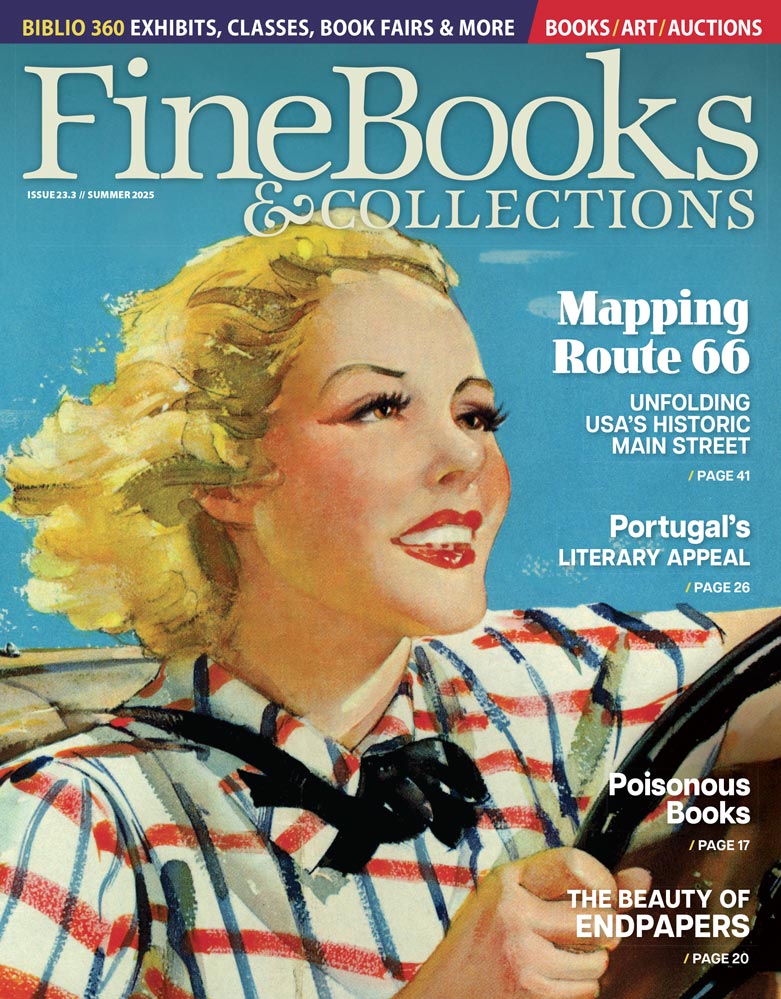Archive of John Ruskin Letters on Health, Politics, Religion, and Architecture at Sworders

Part of the John Ruskin letters archive
An archive of letters by Victorian polymath John Ruskin believed to be the be the largest group of Ruskin letters and manuscripts in private hands comes up for sale at Sworders on July 9.
This collection of hundreds of letters, many of them offered for sale in groups of up to a dozen, cover the wide variety of topics on which Ruskin published.
* On politics he writes to Lawrence Hodson (1864-1933) saying: "If not half so strong a Tory as I am: - I would - if I could - gag Mr Gladstone - hang Mr Chamberlain - and sweep the whole liberal party out of Parliament into the Thames to get out as they could". Hodson, whose home Compton Hall was furnished by Morris & Co, was a well-known collector of pre-Raphaelite paintings and a patron of the Guild of Handicraft (estimate: £600-£800).
* On religion he wrote to the Quaker prison reformer William Tallack on November 20, 1860, attacking the Society of Friends for placing "entirely spurious trust in its own wishy-washy hermeneutics, instead of believing God's prophets in their own plain words". (estimate: £800-£1,200).
* A group of three autographed letters (estimate: £400-£600) includes one penned ‘Easter Day 1884’ to the editor of the Manchester City News, protesting proposed railway development in the Derbyshire Peak District. He describes plans as a "disgrace of the gifts of nature, and the wreck of her order".
Among the most personal writings in the collection is a poem Ruskin likely wrote to his first and most significant infatuation, Adèle-Clotilde Domecq. The daughter of his father's business partner, her Catholicism made her an unacceptable match. News of her marriage to a French nobleman, received while at Oxford, sent Ruskin into a severe physical and emotional collapse. The poem, dated 1837-38, andestimated at £1,000-1,500, reads:
'Ah no - withdraw not thus thy Trust,
For less is Woman's bosom grieved,
To have been oftentimes deceived,
Than once unjust.
Distrust not - nor condemn, but leave,
Thy hope its rest - thy soul its range,
And be it still, though others change,
Thine, to believe.
Pain is our servant. Doubt is death,
Earth's hold of Heaven is all in this -,
The heart may bear to lose its bliss,
But not its Faith.
Also touching on Ruskin’s famously troubled relationships is a four-page autographed letter addressed to 'My dear Sir' giving advice on how best someone with ill health might sojourn in warmer European climes.
“The great thing is to keep your mind agreeably employed and not to expose yourself rashly. I think Italy - take it all in all - is essential country for an Invalid... I think the French air exquisite. When you find it getting too cold for you, run to Paris by the railroad and hence to Nice."
This appears to have been written on the ill-fated holiday John Ruskin spent with his wife Effie Gray and his protégé John Everett Millais. The party arrived in early July 1853 at the hamlet of Brig o' Turk near Stirling, staying first at a hotel, and then in a rented cottage where Effie and Millais fell in love. The elegant writing-paper is likely to have originally belonged to Effie. Ruskin’s marriage to Effie Gray in 1848 was never consummated and was subsequently annulled in 1855.
Many of the letters concern Ruskin’s interest in art and architecture. In an autographed draft manuscript for a lecture to the Arundel Society Ruskin expresses his distaste for much Victorian genre paintings:
“Do you think that, if a group of figures by Perugino, or Luini, as beautiful in many respects as the original - would not be a better decoration for your drawing room than an oil painting of an old gentleman with his family late at a party or a drowned child and a starving dog tied to a mast!."
Much of the work of the Arundel Society consisted of publishing chromolithographs of Italian Renaissance art especially fresco paintings and raising public awareness for the preservation of these works. This seven-page manuscript titled 'Unused Arundel' and dated 1878, has an estimate of £600-£800.
A group of various notes expected to sell at £800-£1,200 include an undated eight-page letter to the Reverend Stephen Bridge concerning the building of the church of St Matthew’s in Denmark Hill, London. The letter includes 11 small pen sketches of architectural details that Ruskin uses to demonstrate what he believes are serious design errors.
"...I find myself reduced to the ungracious task of finding fault with the present design without being able to suggest any mode of arriving at a happier result - still, I feel so strongly that the large sum required for the completion of this floor plan will be miserably wasted - and that many who might be pleased by the drawing, would yet be disappointed by the church.”
St Matthew’s, partially destroyed during the Blitz, was located on the site where King's College Dental School now stands.
A group of 13 autographed letters (estimate £800-£1,200) addressed to James Verity, a Yorkshire numismatist and dealer, discuss coin collecting and plans for a museum for the 'good people of Sheffield'. In one, acknowledging coins sent on approval by Verity, he writes:
"I am intensely delighted with the coins as I examine further - chiefly with the Edward III which I send to Sheffield forthwith. I keep the Rose Noble of Ed. 4th and Black Prince Leopard for myself ... The James's I think I shall return - the polish being brighter than I like ..."





